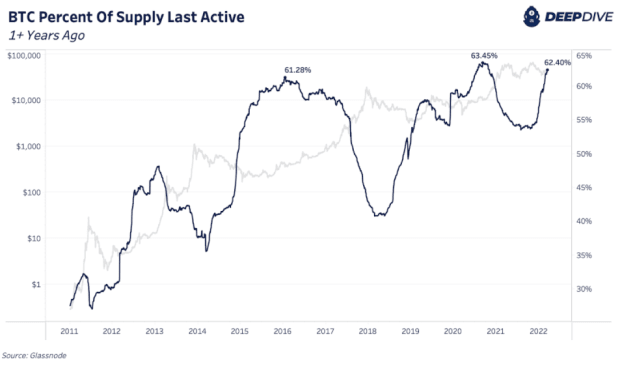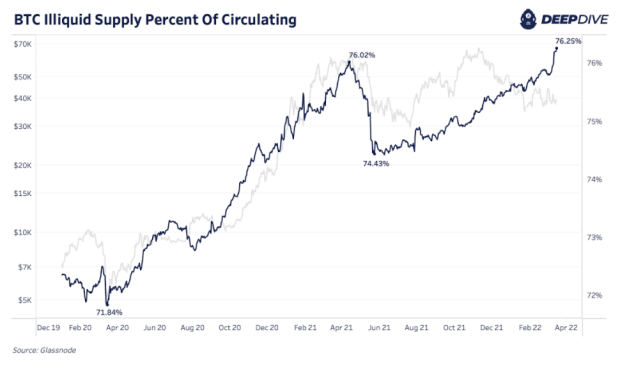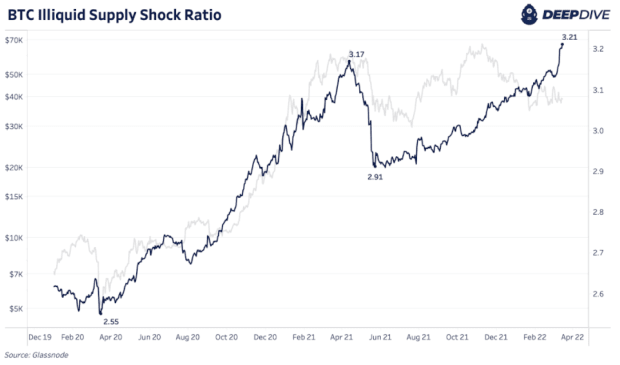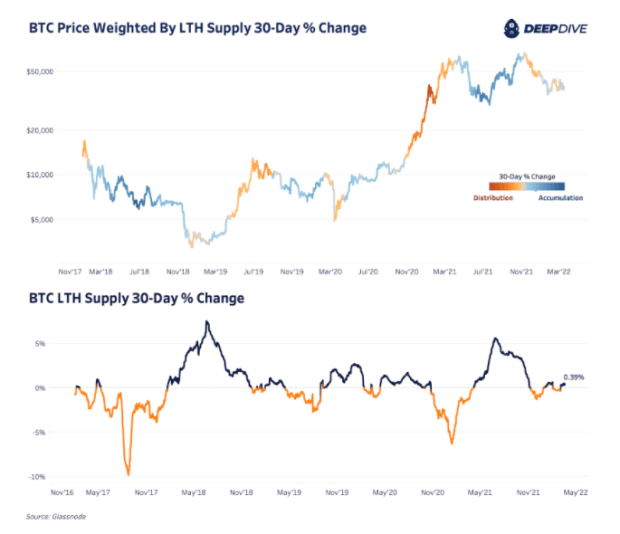The amount of bitcoin as a percentage of circulating supply that hasn’t moved in one year is near an all-time high.
The below is from a recent edition of the Deep Dive, Bitcoin Magazine’s premium markets newsletter. To be among the first to receive these insights and other on-chain bitcoin market analysis straight to your inbox, subscribe now.
Despite our cautious macroeconomic outlook, bitcoin supply side dynamics look extremely strong. The amount of bitcoin as a percentage of circulating supply that hasn’t moved in one year or more is approximately 1% away from all-time high levels.
Previous occasions of one-plus year dormant supply at similar levels predated bull markets. While macroeconomic conditions were markedly different during these periods, we find this to be extremely notable nonetheless, showing just how tight the supply side of the bitcoin market currently is.

Next, we can see that illiquid supply continues to increase, displaying a similar trend. Even in this drawdown, illiquid supply percent of circulating supply has surpassed 2021’s high of 76.02% to 76.25%. Another way to view that dynamic is through the Supply Shock Ratio (illiquid supply over the sum of highly liquid and liquid supply) which continues to show the strength of illiquid supply growth relative to the rest of supply.


Long-term holders continue moderate accumulation and/or short-term holder supply has aged into long-term holder supply. For context, the accumulation happening today is magnitudes lower than the level of accumulation we saw in June to September 2021. Regardless, it’s still a positive on-chain sign to see long-term holder supply neutral-to-rising in the current macro environment.

Another way to look at this dynamic is the long-term holder net position change over the last 30 days where long-term holder supply has changed little since November 2021. Long-term holder supply increased by 52,648 coins over the last 30 days relative to the peak of approximately 630,000 coins in June 2021. That June 2021 period also follows one of the largest long-term holder distribution periods (selling into higher prices) in the last five years.









